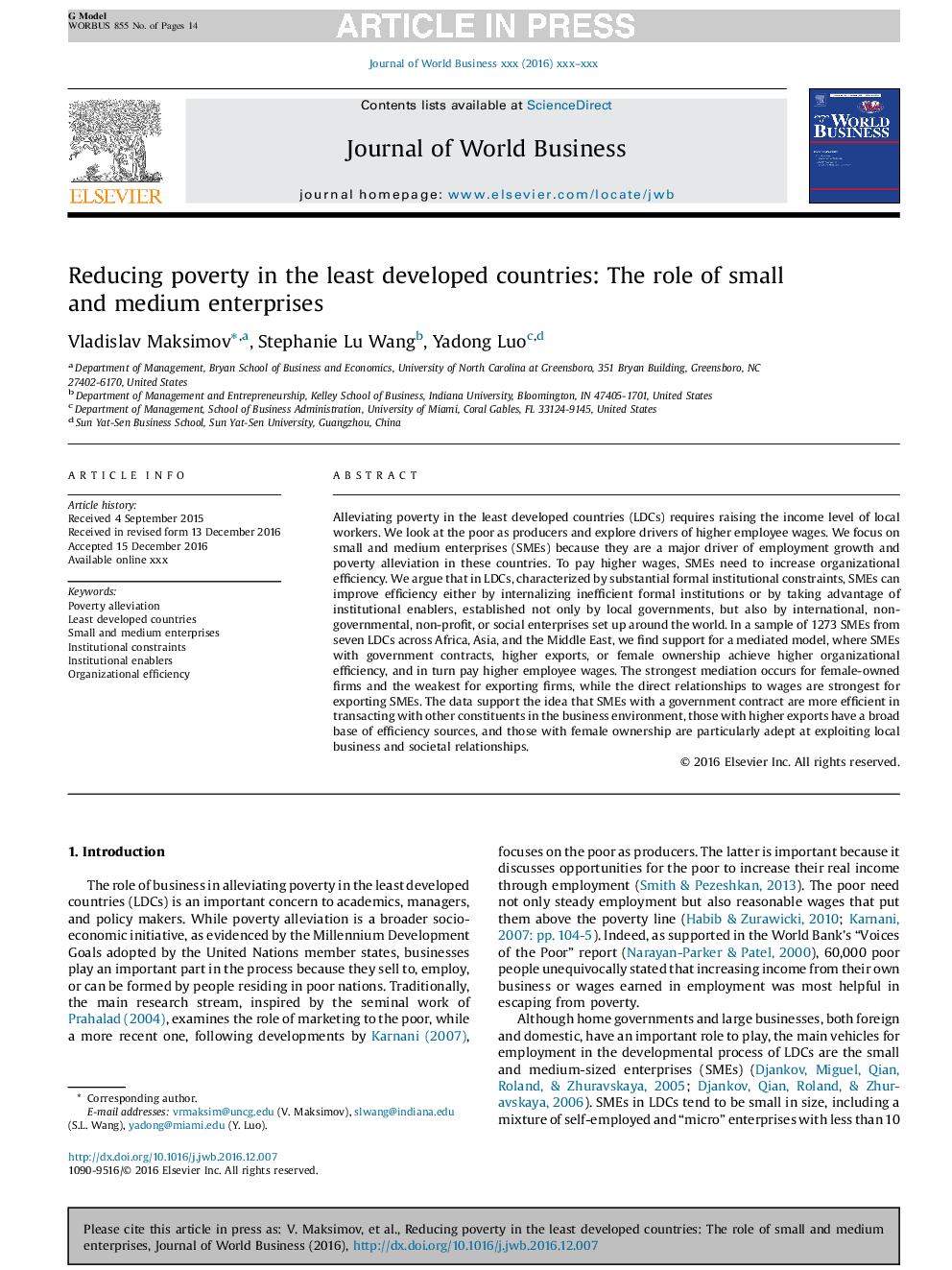| Article ID | Journal | Published Year | Pages | File Type |
|---|---|---|---|---|
| 5107140 | Journal of World Business | 2017 | 14 Pages |
Abstract
Alleviating poverty in the least developed countries (LDCs) requires raising the income level of local workers. We look at the poor as producers and explore drivers of higher employee wages. We focus on small and medium enterprises (SMEs) because they are a major driver of employment growth and poverty alleviation in these countries. To pay higher wages, SMEs need to increase organizational efficiency. We argue that in LDCs, characterized by substantial formal institutional constraints, SMEs can improve efficiency either by internalizing inefficient formal institutions or by taking advantage of institutional enablers, established not only by local governments, but also by international, non-governmental, non-profit, or social enterprises set up around the world. In a sample of 1273 SMEs from seven LDCs across Africa, Asia, and the Middle East, we find support for a mediated model, where SMEs with government contracts, higher exports, or female ownership achieve higher organizational efficiency, and in turn pay higher employee wages. The strongest mediation occurs for female-owned firms and the weakest for exporting firms, while the direct relationships to wages are strongest for exporting SMEs. The data support the idea that SMEs with a government contract are more efficient in transacting with other constituents in the business environment, those with higher exports have a broad base of efficiency sources, and those with female ownership are particularly adept at exploiting local business and societal relationships.
Keywords
Related Topics
Social Sciences and Humanities
Business, Management and Accounting
Business and International Management
Authors
Vladislav Maksimov, Stephanie Lu Wang, Yadong Luo,
